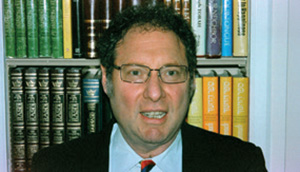
Buried deep within the pages of the popular Pirkei Avot, Ethics of the Fathers, that is frequently studied by thousands of Jews, is a short teaching that barely gets noticed, but is actually of the greatest importance. Near the very end of the book, in Chapter 6, Mishnah 6, we learn there are 48 qualities one must attain in order to acquire the crown of Torah. In the middle of this long list is the gem “One who shares the burden with his neighbor, nosei b’ol im chaveiro.” In other words, every Jew must feel the pain, the suffering, of another Jew.
In all the education we receive regarding the mitzvot of loving-kindness and mitzvot between man and man, there is this final, ultimate lesson that is often not taught. It is the very foundation of all the mitzvot bein adam l’chavero, of all the ethical commandments.
You see and feel everything he does; you share his burden, sense his pain and suffering, because you have made his plight your own. So you must help him.
This quality is not simply a derivative of the mitzvah of loving one’s fellow man. It is the very basis of Torah and mitzvot. It is relatively easy to visit the sick, to write out a check to a charity for the poor, to donate blood for someone with leukemia, to comfort mourners. It is much more difficult to feel their pain and share in their sufferings.
Feeling the burden, the pain and suffering of another person underlies all of the mitzvot “between man and fellow man,” and probably also those “between man and God.” We know a Jew must imitate God and walk in His ways.
We see that God, too, has this quality. When Moshe met God at the Burning Bush and asked Him what was His name, what kind of God He was, God answered that He was with them in their burdens in slavery and He will be with them in their future sufferings in exile. God, l‘havdil, anthropomorphically, in a sense, feels the pain of His people. The prophet Isaiah, says, “In all their sufferings, God also suffers.” Isaiah 63:9. The Shechinah, God’s Presence, went with us into exile.
The Talmud tells us that Hakadosh Baruch Hu, the Holy One, Blessed is He, feels the pain of every person. “Whenever a person says, “My head hurts,” or “my arm hurts,” God says, “Oh, My head hurts, My arm hurts.”
Moshe, too, when he first grew up and came out of the palace of Pharaoh, the Torah says, “He saw their burdens.” Rashi says he suffered with them in his heart (Shemot 2:11). Moshe, the paramount role model, the teacher of the Jewish people, was someone who cared about his people. He truly felt the burden of his fellow Jews—and he did something!
When Rabbi Moshe Feinstein was told by a father about his son who was about to lose his leg to bone cancer, Rabbi Feinstein held the father in his arms and cried and cried with him.
In Brisk, in 1895, there was a fire that destroyed dozens of homes. Reb Chaim Soloveitchik worked tirelessly for the restoration of the homes. During the time, he slept on the floor of the shul, despite his family’s pleas to return home and sleep in his bed. He refused to, responding, “I will not sleep in my bed until every Jew in Brisk has a roof over his head.”
The preacher the Maggid of Dubno once visited the great Torah scholar, the Gaon of Vilna. The Vilna Gaon asked him for a word of musar to admonish him, since that was his expertise—teaching Jews to better themselves. It was the Torah portion where God tells Abraham that he would destroy the evil people of Sodom. “We read that God said to Abraham, ‘If there are only 50 righteous people in the midst of the city I will not destroy the city.’ Now, what does the Torah mean by explicitly mentioning “in the midst of the city”? God is saying, ‘It is not pleasing to me to see righteous men living in seclusion and poring over my sacred teachings in the privacy of their homes, without taking any notice of the troubles and sorrows of their neighbors.’” The Vilna Gaon began to cry and repented!
By Martin Polack
Martin Polack is a business analyst and teaches adult Jewish education.










